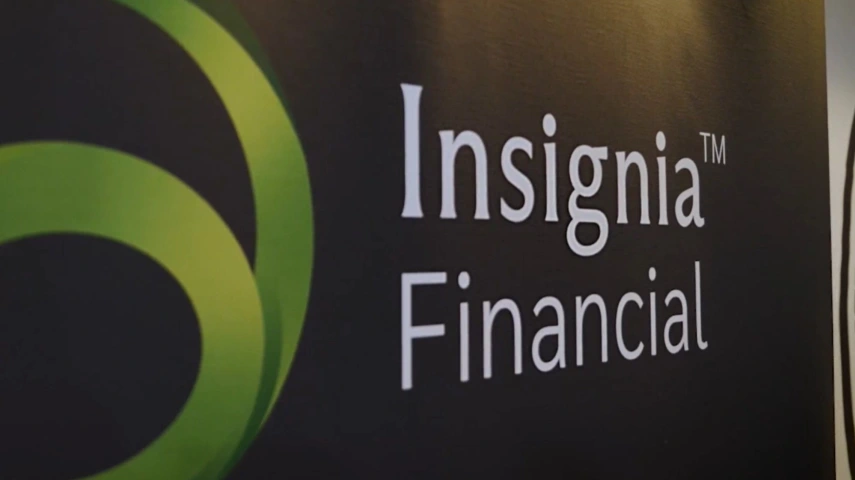Can advice restructure save Insignia from departing advisers?



Insignia’s advice reorganisation is forecast to solidify its reputation as Morningstar notes the firm’s brand integrity is at risk from declining adviser numbers.
There are number of negatives affecting the firm currently, which has seen its share price decline by 24 per cent over the past year.
These include negative aggregate platform flows, declining numbers of advisers, lower fee revenue, weaker competitive position and declining profit margin.
In a Morningstar analyst note from Shaun Ler, he said: “The declining number of advisers, even as industry adviser numbers stabilise, raises concerns about Insignia’s brand integrity. Fewer advisers may also lead to reduced flows into its platforms and investments businesses.
“The loss of funds and advisers results in lower fee revenue weakens Insignia’s long-term competitive position due to reduced scale, and exacerbates negative operating leverage, leading to lower profit margins.”
Insignia is currently Australia’s second-largest licensee behind AMP with around 730 advisers but sold off Millennium3 to WT Financial in December 2023 and divested Godfrey Pembroke earlier this year, which has led to declining numbers.
However, the introduction of a partnership ownership model could present a path to return to success.
Last July, the firm announced it would introduce Rhombus Advisory, a partnership ownership model for self-employed licensees comprising RI Advice, Consultum Financial Advisers and TenFifty. Insignia will hold a majority stake in the group which will reduce over time as advisers receive equity.
Ler said: “We believe Insignia’s adviser network restructure is likely to solidify the firm’s reputation, reduce organic adviser attrition, minimise adviser workflow disruptions and restore morale. Efforts to streamline working processes and new technology upgrades should improve adviser productivity.
“The advice business achieved EBITDA profitability in first half fiscal 2024 after five halves of losses. Revenue and costs per adviser are improving, and adviser attrition is slowing.”
It forecast adviser declines to cease by fiscal year 2027 and stabilise thereafter.
Platform
Looking at the firm’s platform, Morningstar said it faces competition from HUB24 and Netwealth, but Insignia’s clients tend to have lower balances than the other two. This means they benefit from higher profitability despite having a smaller volume of funds under administration (FUA).
Compared to Insignia’s falling share price, HUB24 has seen shares rise 56 per cent over one year while Netwealth has risen 54 per cent.
Improving the platform’s features and competitive fees could help it compete effectively with rivals, and it suggested “the worst is over” on declining platform market share. It also flagged Insignia will see platform fee margins compress slower than other platforms which will lessen downside revenue pressure.
The reason for this, according to Morningstar, is the reducing number of legacy products which are typically sources of outflows as client funds are transitioned into newer, cheaper products.
“We expect funds in the platforms business to keep increasing in the next five years. Client redemptions should be more than offset by the compounding of market returns – given large administered volumes, as well as increased appeal of its platforms – which are catching up to fast-growing competitors in terms of features and fees.
“Redemptions will likely give way to net inflows by fiscal 2027 as Insignia keeps improving its products, legacy product closures cease, and rates fall, which makes risk assets more attractive to investors.
“We expect Insignia’s fee reductions to slow after fiscal 2024, gradually moderating to fiscal 2028. Future fee compression will broadly reflect the natural state of competition and less from deliberate product closures or repricing. Insignia’s cost-out initiatives enabled lower fee levels than before, helping it keep up with competition from fast-expanding peers like HUB24 and Netwealth and gain its fair share of the platforms market.”
Recommended for you
ASIC has released the results of the latest financial adviser exam, held in November 2025.
Winners have been announced for this year's ifa Excellence Awards, hosted by Money Management's sister brand ifa.
Adviser exits have reported their biggest loss since June this week, according to Padua Wealth Data, kicking off what is set to be a difficult December for the industry.
Financial advisers often find themselves taking on the dual role of adviser and business owner but a managing director has suggested this leads only to subpar outcomes.













Closing MLC Wrap and forcing clients into an inferior platform was not a good start. In 2024 it's amazing that their new has less technology than a platform created 15 years ago. It is as if platforms are a brand new thing to the people that built Expand.
A tad optimistic from Morningstar. Adviser numbers are somewhat irrelevant; it all comes down to the platform and whether it is competitive. If it is, advisers will use it regardless of whether they sit under Insignia. As things currently sit, the platform is in terrible shape compared with its competitors and call wait times push 1 hour.
Dear CEO and board,
It's time to start some VERY HEAVY LOBBYING on behalf of advisers which could save your platform revenue income and garner new loyalty and buiness well into the future. Your new Expand offering is EXCELLENT, however it would be hard to get traction while advisers are fighting for their futures and livelihoods against a sea of Government Red Tape and ABUSE via CLSR and ASIC fees.
It would be a great investment for the future of the business and the future of the industry.
Regards